
Our goal was the Grutas (caves) de Loltun with 10,000-year-old cave art. “Take Highway 251 to Muna and then follow the signs to Grutas de Loltun” the local tourist guide confidently advised. But there were no signs. I don’t mean that there were no large signs. I mean there were no road signs, no hand made signs, no portents in the heavens. Almost as soon as we left Merida our quest became a scavenger hunt. There were detours, there were local markets, there were potholes like tiger traps and fortunately, there was the occasional helpful police officer.
While many tourists get no further into the Yucatan than the magnificent ruins of Chichen Itza, more adventurous travelers should visit the ruins around the Ruta Puuc south of the colonial capital of Merida. The destination is worth the effort and the journey has its own rewards.
Table of contents: ()
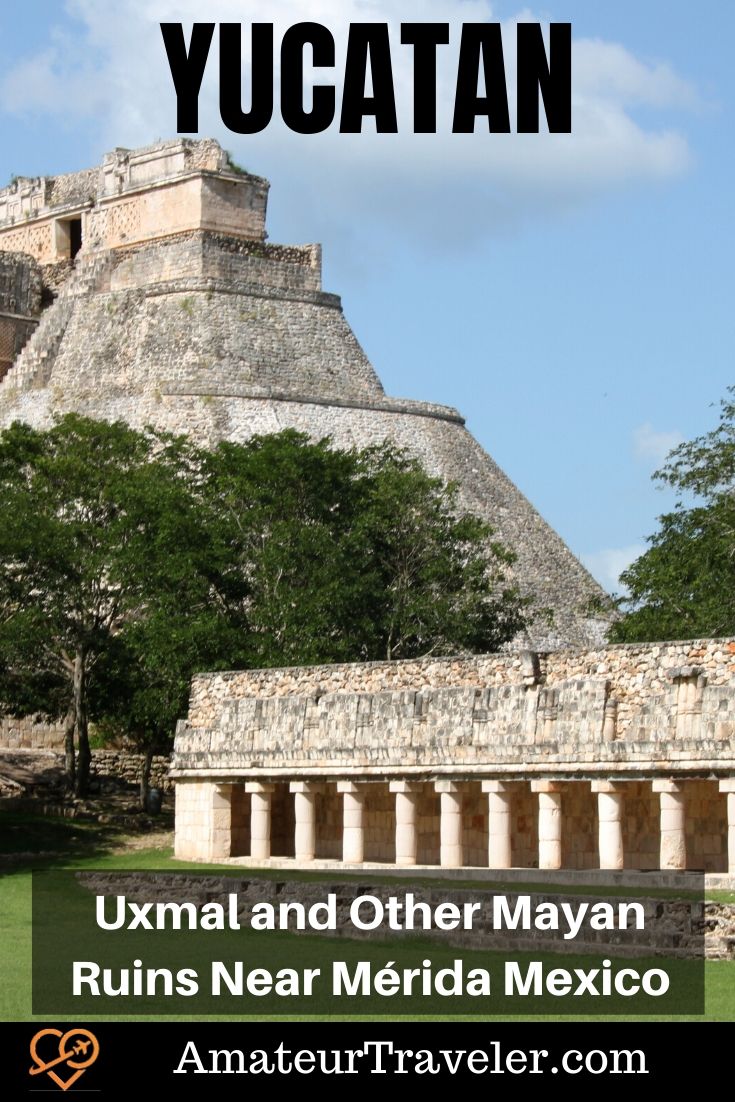

Merida
Merida makes a great home base for exploring the Yucatan and the Ruta Puuc. Try and arrange your visit to be in Merida on a Sunday when locals take over the central plaza with food booths, crafts, and local dances. My favorite meal we ate on Mexico’s Yucatan Peninsula was the $1 tacos we ate sitting at tables along the side of the plaza.

Street Food
The city is beautiful but the area around the central square is particularly charming at night. Listen to the music, watch the dancers, and try the street food. I particularly recommend the marquesitas which are a sweet crepe filled with cheese and a sweet filling. Of course, if you get a churro instead, I won’t judge you.
Accommodations in Mérida
A couple of great places to stay in Merida are the small boutique hotels Luz En Yucatan Hotel Merida and The Diplomat Boutique Hotel.
Ruta Puuc Map
Ruta Puuc
The Ruta Puuc is a rural route south of Merida that connects 5 Mayan ruins (Uxmal, Kabah, Sayil, X-Lapak, Labna), the Caves at Loltun and some historic haciendas into a one or two-day trip. The driving is not difficult but navigation is a different issue. The main route between the Mayan ruins is a well-paved and well-marked road. So if you start at Uxmal and proceed west to east you should not have any problems.
We followed the suggestion of starting first at the Loltun Caves but that route is poorly marked. Drive slowly because as you get into each small town the highway will be routed circuitously through town. It was helpful to have a navigator who could keep an eye out for small signs with the highway number. We were convinced numerous times that we had lost our way as we zig-zagged through the back streets of small towns. A GPS navigation system would have been helpful. You might also download the free app maps.me and download local maps in case you don’t have a cell signal.

Loltun Caves
The Yucatan is a swiss cheese of underground rivers and caves. From the air, it is dotted with cenotes which are sinkholes filled with water. The Loltun Caves are a “dry” cave that was used by the Mayans for ceremonies and by ancient peoples as long ago as 10,000 years. The cave does have cave art which is not extensive compared to the cave art in some caves I have seen in Spain but it is none the less amazing to see handprints from 10,000 years ago (see picture at the beginning of the article).
Our guide hit one of the big stalactites and told us that the name Loltun came from the resulting sound. What I read online is that the name came from two Mayan words: “Lol” for flower and “Tun” for stone. I would assume if that story is true it would be named for the different shapes found in the stone formations in the cave. So… don’t trust everything your guide tells you or don’t trust everything the web tells you… you decide.

I called Loltun a “dry” cave in the sense that it is not filled with water, but it is incredibly humid. We came out of the cave so drenched that it might as well have been filled with water. It seems amazing to hear that mammoth bones were found in the cave. Clearly, the climate in the area was much cooler during the last ice age.
You must take a tour to enter the Loltun Caves. Tours start at 9:30 am, 11:00 am, 12:00 noon, 2:00 pm, 3:00 pm, and 4:00 pm. The entrance is 102 pesos for foreigners but less for Mexican nationals. The cave is 110 kilometers southeast from Merida so allow driving time and time to get lost.

Uxmal
The largest and most impressive of the Mayan ruins on the Ruta Puuc is Uxmal. Uxmal has some pyramids that you can still climb, unlike the busier Chichen Itza. You cannot climb the main temple which is an unusual elliptical temple called the Pyramid of the Magician. The name comes from a legend that says the pyramid was built magically overnight.

Images of the Mayan Rain God Chaac are everywhere. Chaac was thought to live in the nearby cenotes (water holes) and was worshipped in later years with human sacrifices. Uxmal, like other Mayan cities, may have been abandoned because of decease. One theory is that the worship of Chaac, by throwing people as sacrifices into a series of connected cenotes, is probably a great way to get people sick. When the people would get sick, they assumed that Chaac no longer favored this city. They would then move somewhere else and repeat the cycle.
Uxmal is open from 8 am to 5 pm. Uxmal has a sound and light show at 7:00 pm during Fall and Winter and 8:00 pm during Spring and Summer that is more hokey than awe-inspiring.
We stayed at the hotel on the grounds of Uxmal, The Lodge at Uxmal, which was built to house the archeologists who did the initial excavation. It is a lovely hotel with a beautiful outdoor pool area. From there you can easily walk back to the site for the sound and light show. This is a jungle so bring your mosquito repellent.
Labna, X-Lapak, Kabah, and Sayil
In between Uxmal and Loltun are 4 lesser-known sites that are worth a stop if you have time. We found that a second day would have been needed to visit all the sites.
Labna is famed for its entrance arch. The entrance fee is 42 pesos.
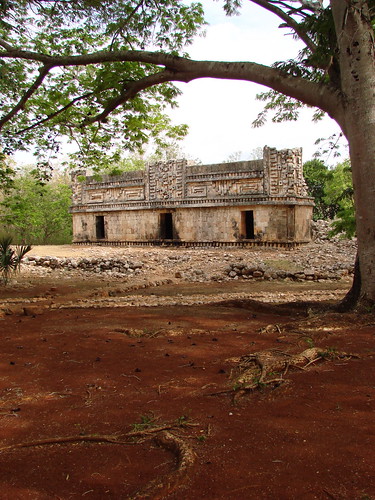
X-Lapak
X-Lapak is a partially excavated site and so less spectacular but admission is free.
Kabah
Kabah is most well known for a palace covered with masks of the rain god Chaac. The entrance fee is 42 pesos.
Sayil
Sayil, which means “The Place of the Ants”, has a large palace with 90 bedrooms. The entrance fee is 42 pesos.
The Ruta Puuc, and in particular the road to the Caves of Loltun challenged our navigation skills but it led to a wonderfully under-explored part of the Yucatan. Give me the road less traveled any day of the week… but please give me someone to help navigate.
For more information on the Yucatan and the Ruta Puuc listen to
-
-
- Travel to the Yucatan Peninsula of Mexico – Amateur Traveler Episode 163 which inspired out trip
- Travel to Merida and the Yucatan Peninsula of Mexico – Episode 602 which is a more recent update on the area
-
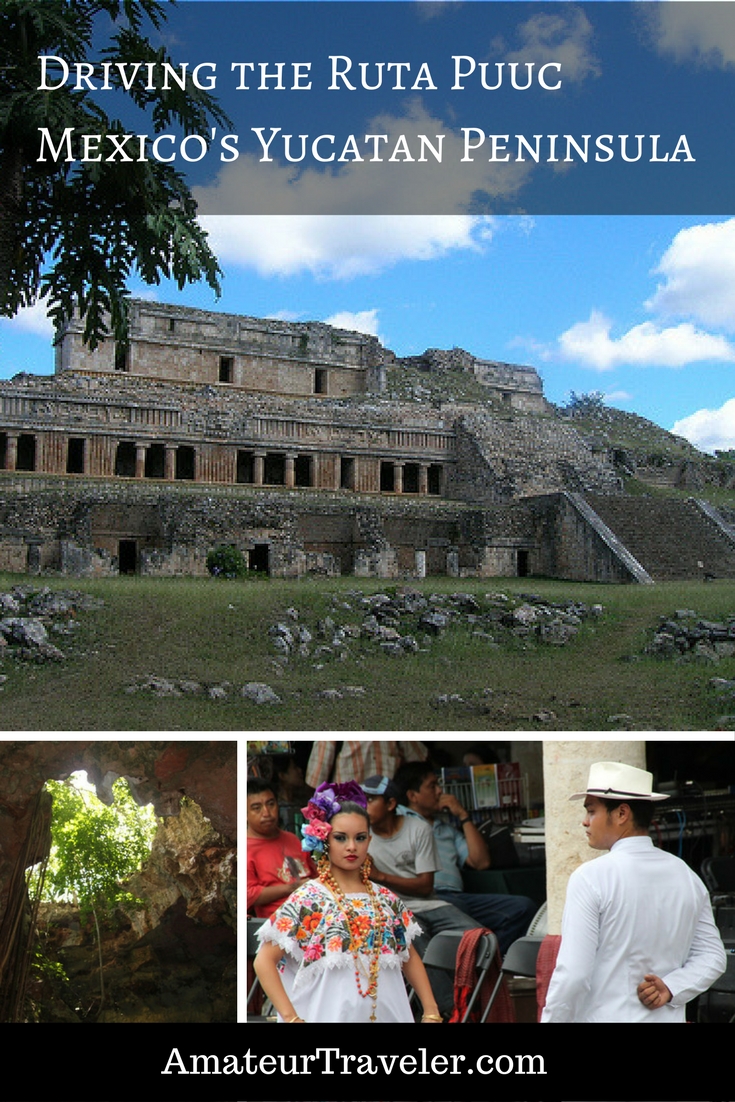
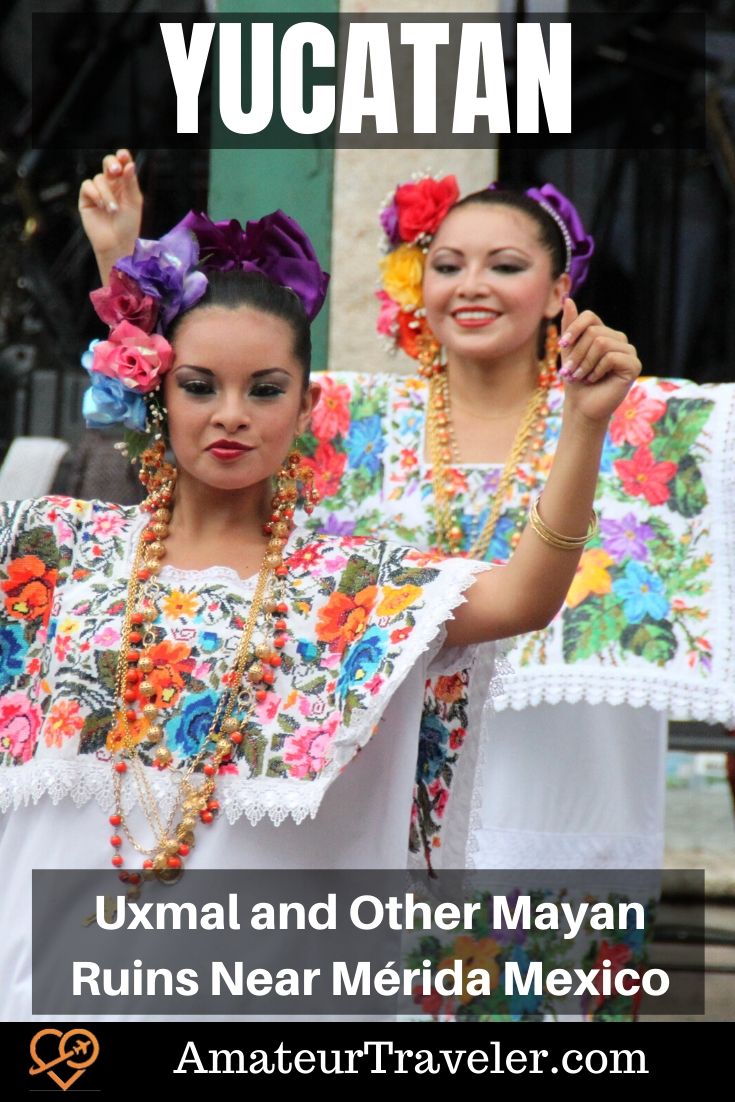
+Chris Christensen | @chris2x | facebook

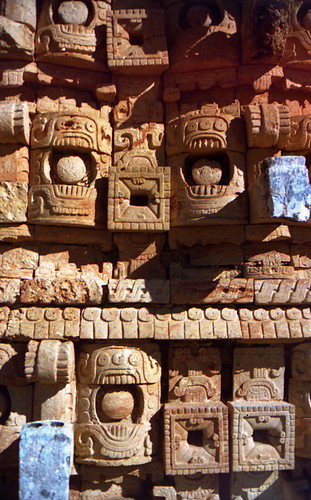
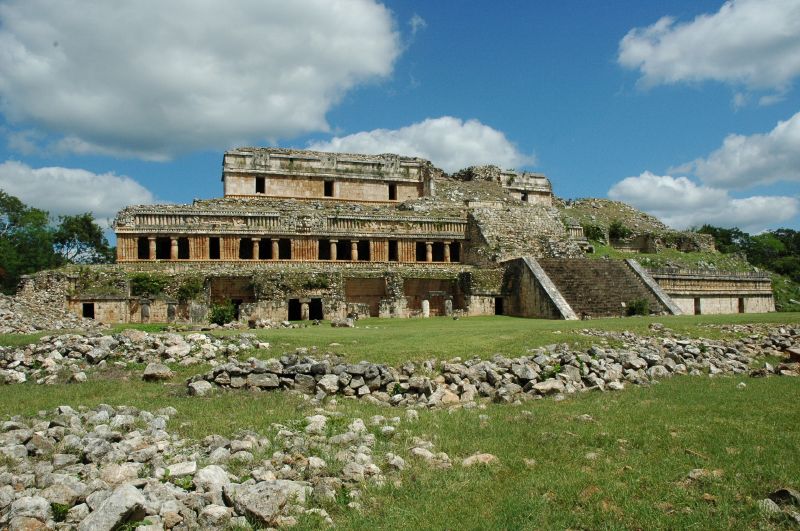
 Travel to Merida and the Yucatan Peninsula of Mexico – Episode 602
Travel to Merida and the Yucatan Peninsula of Mexico – Episode 602 8 Day Trips from Cancun in Mexico’s Yucatan Peninsula
8 Day Trips from Cancun in Mexico’s Yucatan Peninsula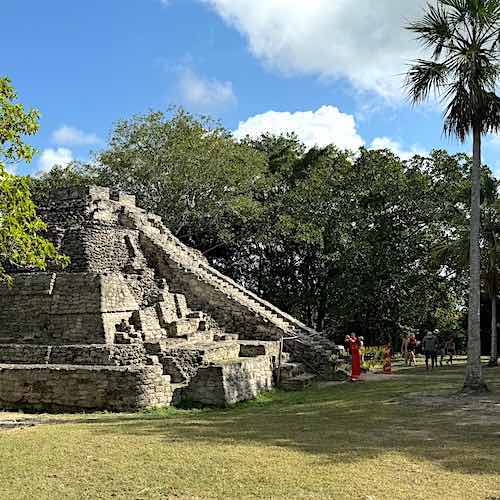 Best Mayan Ruins Accessible by a Western Caribbean Cruise
Best Mayan Ruins Accessible by a Western Caribbean Cruise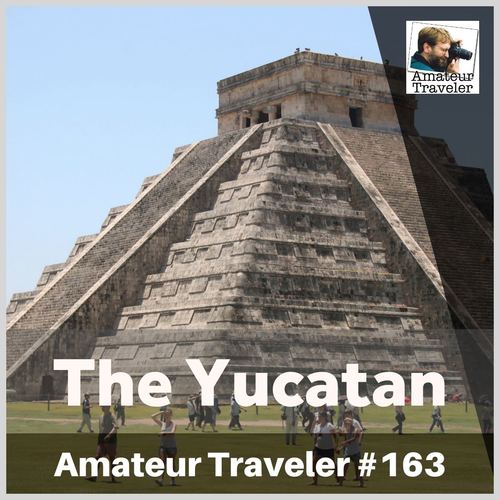 Travel to the Yucatan Peninsula of Mexico – Episode 163
Travel to the Yucatan Peninsula of Mexico – Episode 163

Armands Balodis
Says:July 16th, 2012 at 10:02 am
Very nice photo of the temple. One of my next travel destinations is Peru to do the Inca trail, but Mayan civilization is just as great.
Brittany
Says:September 2nd, 2015 at 8:45 am
Hi there! Thanks for all the great tips for driving and navigating the Ruta Puuc. I will be going there this fall and am a little worried about traveling solo and renting a car by myself… Any tips or advice for me? How did you finally end up finding the Loltun Caves? Would you recommend renting a GPS navigator from the car rental company?
Thanks!
chris2x
Says:September 2nd, 2015 at 11:54 pm
A GPS system, either on your phone or in the car would not hurt. I am not sure exactly what we did as I was driving and not looking at the map, so I am not sure how to tell you to avoid our mistake.
Elaine Masters
Says:November 1st, 2018 at 3:28 pm
Love that part of Mexico and have been to Uxmal. Merida would be my base next time now that I’ve seen the coast and I’d love to return to Chichen Itza but do it in a cooler time of year. That heat can be searing – shade or no!